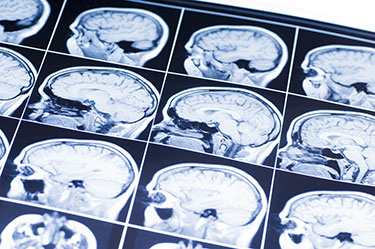If you or a loved one suffered a brain injury in Berkeley, the impact can feel overwhelming. You may be facing memory loss, cognitive challenges, or long-term medical care.
Our Berkeley brain injury lawyers hold negligent drivers, employers, or property owners accountable, so you can focus on healing and regaining stability in your life.
GJEL Attorneys work on a no win, no fee basis. You pay no contingency fee. You pay only if we settle or win your Berkeley brain injury case.
Call GJEL Accident Attorneys 24/7 or Visit Our Berkeley Office
Our Berkeley brain injury lawyers are available 24/7, day or night, to provide a free consultation and start working on your injury claim right away.


Understanding Brain Injuries

Brain injuries can occur as a result of many types of accidents, including car accidents, slips and falls, construction accidents, and more.
The severity of a brain injury can vary widely, from mild concussions to severe traumatic brain injuries.
Mild brain injuries may only cause temporary symptoms, such as headaches or dizziness, while more severe injuries can cause permanent disabilities or even death.
The Impact of Brain Injuries
The impact of a brain injury can be devastating, not only for the person who suffered the injury but for their family as well. Brain injuries can result in a wide range of physical, emotional, and cognitive impairments, including loss of memory and cognitive function, difficulty with speech and communication, chronic headaches and migraines, seizures, epilepsy, loss of vision or hearing, changes in personality and behavior, and depression, anxiety, and other mental health conditions.
The financial costs of a brain injury can also be significant, with medical bills, lost wages, and ongoing care expenses adding up quickly. It’s crucial to seek legal representation from an experienced brain injury attorney to ensure that you receive fair compensation for your injuries.
How GJEL Accident Attorneys Can Help
At GJEL Accident Attorneys, our team of dedicated attorneys has decades of experience representing clients who have suffered brain injuries. We understand the complex medical and legal issues involved in brain injury cases and work tirelessly to ensure that our clients receive the compensation they deserve.
Our personal injury attorneys will investigate the circumstances of your accident, gather evidence to support your claim and negotiate with insurance companies and other parties to ensure that you receive fair compensation for your injuries.
We also understand the emotional toll that a brain injury can take on you and your family. We provide compassionate and personalized representation, working closely with you to ensure that your needs are met and your rights are protected throughout the legal process.
Why Choose GJEL Accident Attorneys?
Choosing the right attorney to represent you in a brain injury case can be a difficult decision. At GJEL Accident Attorneys, our experience, expertise, and dedication set us apart from other firms.
Here are just a few reasons why you should choose GJEL Accident Attorneys to represent you:
- Decades of experience: Our team of attorneys has decades of experience representing clients in brain injury cases. We have the knowledge and expertise needed to advocate for our client’s rights effectively.
- Proven track record of success: We have a proven track record of success in brain injury cases, securing millions of dollars in compensation for our clients.
- Compassionate representation: We understand the emotional toll that a brain injury can take on you and your family, and we provide compassionate and personalized representation to ensure that your needs are met.
- No fees unless we win: We work on a contingency fee basis, meaning you don’t pay us anything unless we win your case.
Common Types of Brain Injuries
There are several types of brain injuries that can occur
Concussion
Concussions are a type of mild traumatic brain injury that occurs as a result of a blow to the head or a violent shaking of the head and body. Symptoms of a concussion may include headaches, dizziness, nausea, confusion, and memory problems. Most people recover from concussions within a few weeks, but some may experience long-term symptoms.
Traumatic Brain Injury (TBI)
A traumatic brain injury (TBI) is a type of brain injury caused by a blow to the head or a penetrating head injury that disrupts the normal function of the brain. Symptoms of a TBI can range from mild to severe and may include loss of consciousness, confusion, memory loss, and cognitive impairments. A TBI can have a significant impact on a person’s life, and the long-term effects can be devastating.
Anoxic Brain Injury
Anoxic brain injury occurs when the brain is deprived of oxygen for an extended period, such as during a near-drowning, choking, or suffocation. Symptoms of anoxic brain injury may include confusion, memory loss, and cognitive impairments. In severe cases, anoxic brain injury can cause coma or death.
Hypoxic Brain Injury
Hypoxic brain injury occurs when the brain is partially deprived of oxygen, such as during a heart attack, stroke, or other medical emergency. Symptoms of hypoxic brain injury may include confusion, memory loss, and cognitive impairments. In severe cases, hypoxic brain injury can cause coma or death.
Don’t Wait. Call an Attorney Today
If you or a loved one has suffered a brain injury as a result of an accident, don’t wait to seek legal representation.
The longer you wait, the more difficult it may be to gather evidence and build a strong case. For a free consultation, contact GJEL Accident Attorneys today at 510-841-7820 or visit us at 1214 Fourth St, Berkeley, CA 94710.
Our experienced brain injury attorneys can help you navigate the legal process and ensure that your rights are protected. We serve clients in Berkeley, Oakland, Richmond, Emeryville, Albany, El Cerrito, and the surrounding areas.
Frequently Asked Questions
Q: What should I do if I or a loved one has suffered a brain injury?
A: Seek medical attention immediately, and then contact an experienced brain injury attorney as soon as possible to protect your legal rights.
Q: What damages can I recover in a brain injury lawsuit?
A: You may be able to recover damages for medical expenses, lost wages, pain and suffering, and other economic and non-economic losses.
Q: How long do I have to file a brain injury lawsuit?
A: The statute of limitations for brain injury lawsuits in California is generally two years from the date of the injury, but there are exceptions that may apply.
Q: Can I afford to hire a brain injury attorney?
A: At GJEL Accident Attorneys, we work on a contingency fee basis, meaning you don’t pay us anything unless we win your case.
Q: How long will it take to resolve my brain injury case?
A: The timeline for a brain injury case depends on many factors, including the severity of your injuries, the complexity of the case, and the willingness of the other parties to negotiate a fair settlement.
The aftermath of a brain injury sustained in an accident can be a profoundly challenging period, marked by significant physical, emotional, and financial burdens. Navigating the complexities of medical treatment and legal proceedings while coping with the often devastating consequences of a brain injury requires the support of experienced and compassionate legal counsel.
GJEL Accident Attorneys, with their extensive knowledge of brain injury cases and commitment to client advocacy, stand ready to provide that essential support, ensuring that victims and their families receive the comprehensive representation needed to secure the compensation they deserve.
If you or a loved one has suffered a brain injury in the Berkeley area or the surrounding communities, do not delay in seeking legal assistance. The sooner you contact GJEL Accident Attorneys, the sooner we can investigate your case, gather crucial evidence, and protect your rights.
Our dedicated team is committed to fighting for your best interests and working tirelessly to help you obtain the maximum possible recovery. Call us today for a free consultation, and let us help you find your path to healing and justice.
Sources
- National Institute of Neurological Disorders and Stroke. Traumatic Brain Injury: Hope Through Research. https://www.ninds.nih.gov/Disorders/Patient-Caregiver-Education/Hope-Through-Research/Traumatic-Brain-Injury-Hope-Through-Research
- Brain Injury Association of America. Types of Brain Injury. https://www.biausa.org/brain-injury/about-brain-injury/types-of-brain-injury
- Centers for Disease Control and Prevention. Traumatic Brain Injury & Concussion. https://www.cdc.gov/traumaticbraininjury/index
- University of California, Berkeley. Traumatic Brain Injury Program. https://tbiprogram.sph.berkeley.edu/


 AI-search
AI-search  Email
Email